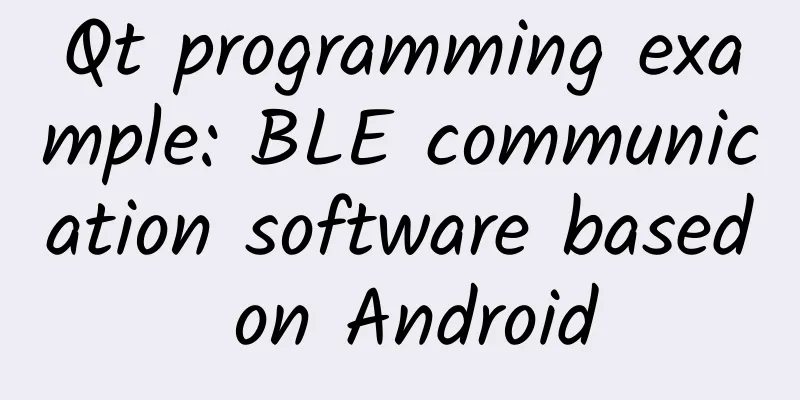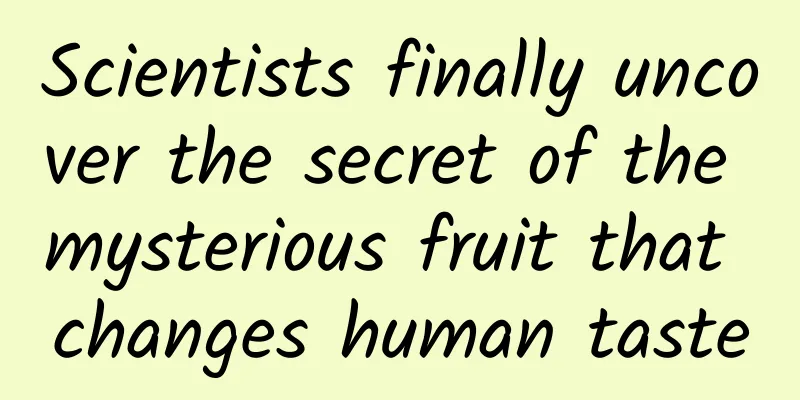From a rural kid in the South to a hot candidate for the Nobel Prize, he says if he can do it, so can you!

|
"When I was a child growing up in the mountains of southern China, I often looked up at the stars. But I never thought I would be able to touch them so closely." "Education is the great equalizer. It has done more than lift me out of poverty. It has allowed me to explore the wonderful world of science..." “I want to say to kids all over the world: Hey, if I can do it, you can do it too.” On September 19, 2024, at the Lasker Award ceremony, which is known as the "barometer" of the Nobel Prize, the acceptance speech of the winner of the Basic Medical Research Award, Chinese scientist Chen Zhijian, was sincere and touching. Although he has achieved success and fame, he still does not forget to encourage those who are working hard. Chen Zhijian is known as the "Pride of the Chinese". He became another Chinese scientist who won the Lasker Award and a hot candidate for the Nobel Prize after Tu Youyou and Lu Yuming because of his "cGAS enzyme that senses foreign and self DNA and solves the mystery of how DNA stimulates immune and inflammatory responses". From a rural child in Fujian to his current achievements, what kind of counterattack life has he walked out? Chen Zhijian (Photo credit: University of Texas Southwestern Medical Center) Reading changes your life Chen Zhijian was born in Nandou Village, Changkeng Township, Anxi County, Fujian Province in 1966. His father worked away from home all year round, and his mother was a teacher at a local primary school. As the eldest of three children in the family, he had to study while helping his mother with housework since he was a child. Chen Zhijian knew that studying was not easy, so he knew how to cherish it since he was a child. At the age of 13, he entered Anxi No. 1 Middle School. In the eyes of his teachers, he was quiet and focused on his studies. "I always carried a big schoolbag with a lot of books in it, and I read whenever I had time." In 1981, Chen Zhijian was admitted to the Department of Biology of Fujian Normal University with excellent results. Although his family was ordinary, his parents were very far-sighted. Before he left, they spent 40 yuan to buy a second-hand tape recorder for him to use to learn English. This second-hand tape recorder accompanied Chen Zhijian throughout his college years. Every day he would learn English by following the tapes. Even his teacher was moved by his enthusiasm for learning and specially vacated a small radio room of 5 square meters for him to study in his spare time. In 1985, Chen Zhijian was admitted to Fujian Normal University with a master's degree in biochemistry with the highest score in foreign languages in the province. Only one year later, he was admitted to the School of Medicine of the State University of New York with excellent results to pursue a doctorate in biochemistry, thus embarking on a "cheating" academic journey. After graduating with a Ph.D. in 1991, Chen Zhijian went to the world-renowned Salk Institute for Biological Studies for postdoctoral research, and then worked as a research scientist in a medical company. During this period, he made important contributions to the discovery of important drugs such as VELCADE, a drug for the treatment of multiple myeloma, and accumulated pharmaceutical experience from the industry. Since 1997, Chen Zhijian has worked at the University of Texas Southwestern Medical Center, where he served as an assistant professor, associate professor, and tenured professor in the Department of Molecular Biology. In 2005, he became a researcher at the Howard Hughes Medical Institute. Both research institutions are cradles of famous Nobel Prize winners. Standing in the world's medical research hall, Chen Zhijian has focused his research on the exploration of the mechanism of human immune cells and has reaped fruitful results. His most outstanding contribution is to solve the century-old problem of DNA immune recognition, discover important natural immune molecules such as cGAS, cGAMP, MAVS, reveal the internal working principle of innate immunity, provide new ideas for the diagnosis and vaccine development of lupus erythematosus and AIDS, and also provide new ways for the future development of clinical drugs for the prevention and treatment of infectious diseases, cancer and autoimmune diseases. Chen Zhijian has become famous in the field of biochemistry worldwide for his outstanding scientific contributions. He has won many important scientific awards, including the Paul Ehrlich and Ludwig Darmstadt Prizes, Germany's highest medical awards, as well as the Molecular Biology Award of the National Academy of Sciences of the United States, the Merck Award of the American Society for Biochemistry and Molecular Biology, the 2018 Lurie Award in Biomedicine, the 2019 Breakthrough Prize in Life Sciences, and the 2020 William Coley Award in Tumor Immunology. He was elected a member of the National Academy of Sciences of the United States in 2014. Xie Xiaoliang, an academician of the Chinese Academy of Sciences, once gave a very high evaluation of Chen Zhijian's academic achievements: "Professor Chen Zhijian is one of the representatives of the highest intellectual level of the Chinese people. His achievements mark the pinnacle that Chinese biologists aspire to reach." Become the "accelerator controller" of the immune system After winning the Lasker Basic Medical Research Award, Chen Zhijian is expected to become a strong contender for the Nobel Prize. So, what exactly is the cGAS enzyme that helped him "charge forward"? On November 16, 2019, Chen Zhijian introduced cGAS, the "accelerator of the immune system", to everyone at the Future Science Prize Science Summit. He gave everyone an example: In 2015, the 91-year-old former US President Jimmy Carter was diagnosed with melanoma, but he was lucky to receive the world's most advanced treatment plan, which cleared the cancer cells in his body in just 4 months. During his treatment, a PD-1 inhibitor played an important role. It is a "killer weapon" to prevent the immune system from "braking". The full name of cGAS is "cyclic GMP-AMP synthase". It can recognize DNA that should not appear in the cytoplasm to activate the immune response and is the "accelerator" of the immune system. cGAS recognizes foreign DNA to initiate immune responses (https://doi.org/10.1016/j.chom.2015.05.005) In the past 100 years, mankind has achieved a brilliant victory in fighting infectious diseases, and the average life expectancy has increased from about 50 to about 80 years old. However, this is accompanied by the widespread emergence of chronic diseases such as immune system diseases and cancer. How to make full use of the immune system to fight these chronic diseases is an important issue facing biomedical researchers. In 2013, Chen Zhijian's team discovered cGAS for the first time in the world and named it, solving the mystery of how DNA stimulates immune and inflammatory responses, a problem that has troubled the scientific community for a century. Even Chen Zhijian once lamented: "It's amazing that this 'sensor' is actually an enzyme." In other words, the cGAS enzyme studied by Zhijian Chen is an enzyme that acts as an "alarm" in cells. It is like a "sentinel" in the cell. When it finds DNA that should not exist in the cytoplasm, it will send a signal to initiate an immune response. For example, when a virus invades a cell, the viral DNA will enter the cytoplasm, and cGAS will recognize this DNA and then produce a substance called cGAMP. This substance activates another protein called STING, which in turn prompts cells to produce immune molecules such as interferon to help the body fight viruses. This process is very important for our immune system because it helps us detect and respond to the invasion of pathogens in a timely manner. Despite his impressive achievements, Chen Zhijian has always remained humble and low-key. He said that if the scientists who discovered the double helix structure of DNA were the "Huang Yaoshi" or "Yang Guo" with unparalleled martial arts skills, he would be at most an "elder of the Beggars' Sect". He emphasized that in the future, we need to find more "brakes" and "accelerators"; we also need to find "seat belts" to control the possible side effects of immunotherapy; and we also need to find better editable T cell therapies that surpass CART therapies. Nowadays, new technologies and methods such as gene therapy and cell therapy are constantly emerging, and AI technology will also help the development of new drugs. Chen Zhijian believes that humans will be able to achieve a "great victory in the fight against disease" within 10 years. By 2030, humans may be able to achieve longer and healthier lives based on a better understanding and manipulation of the immune system. |
>>: "Little Me" is a hit! About the cerebral palsy in the play: I'm not stupid, just a little slow
Recommend
Can AI cure hair loss? Chinese scientists propose new treatment for hair regrowth
Nowadays, hair loss has become a headache for con...
Good news for wound healing: snails on French tables are not only delicious but also useful!
Produced by: Science Popularization China Author:...
A man was rejected on a blind date because of a change in his palm! Do you have any of these symptoms?
"Slow down on your blind date, you should go...
International Museum Day丨Amazing! Take a look at these fashion items of the ancients
To create a sense of fashion, exquisite small ite...
Operational Promotion: What is the promotional strategy behind Alipay’s “face payment”?
To be honest, I was tricked by Alipay a few days ...
Day doesn't understand the darkness of night! How does Android Q beat iOS 13?
Google I/O 2019 will be held at the Shoreline Amp...
WeChat dedicated input method is here
According to the latest news, WeChat input method...
If you want your product copy to speak well, first learn to cut the copy
A copywriter is a salesperson who sits behind a k...
Check the investment price of Zibo Men's Wear Mini Program. How much is the investment price of Zibo Men's Wear Mini Program?
How much does it cost to attract investment in th...
Do you believe that high-quality vegetables without insects or pollution can be grown under the sea?
The May 3 issue of Nature News published a photo,...
10 Practical but Paranoid Java Programming Techniques
[[147453]] After you've been coding for a whi...
Datong Mini Program Investment Company, how much does the watch mini program cost?
How much does it cost to invest in Datong Watch M...
The ducks know first when the river water warms up in spring? The "spring" in ancient poems has a hidden meaning
Audit expert: Wang Kang Director of the National ...
Apple tax suffered a heavy blow! The court ruled that the App Store must open third-party payment within 90 days
This article is reprinted with permission from AI...
As the number of fans in Greater China continues to decline, what is the point of Apple betting on India?
Recently, Apple released its first quarter financ...









